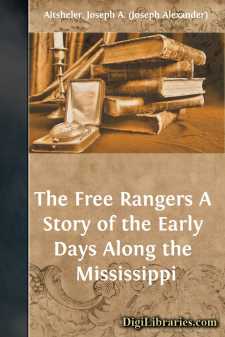Categories
- Antiques & Collectibles 13
- Architecture 36
- Art 48
- Bibles 22
- Biography & Autobiography 813
- Body, Mind & Spirit 142
- Business & Economics 28
- Children's Books 15
- Children's Fiction 12
- Computers 4
- Cooking 94
- Crafts & Hobbies 4
- Drama 346
- Education 46
- Family & Relationships 57
- Fiction 11828
- Games 19
- Gardening 17
- Health & Fitness 34
- History 1377
- House & Home 1
- Humor 147
- Juvenile Fiction 1873
- Juvenile Nonfiction 202
- Language Arts & Disciplines 88
- Law 16
- Literary Collections 686
- Literary Criticism 179
- Mathematics 13
- Medical 41
- Music 40
- Nature 179
- Non-Classifiable 1768
- Performing Arts 7
- Periodicals 1453
- Philosophy 64
- Photography 2
- Poetry 896
- Political Science 203
- Psychology 42
- Reference 154
- Religion 513
- Science 126
- Self-Help 84
- Social Science 81
- Sports & Recreation 34
- Study Aids 3
- Technology & Engineering 59
- Transportation 23
- Travel 463
- True Crime 29
Before the Dawn A Story of the Fall of Richmond
Categories:
Description:
Excerpt
A WOMAN IN BROWN
A tall, well-favoured youth, coming from the farther South, boarded the train for Richmond one raw, gusty morning. He carried his left arm stiffly, his face was thin and brown, and his dingy uniform had holes in it, some made by bullets; but his air and manner were happy, as if, escaped from danger and hardships, he rode on his way to pleasure and ease.
He sat for a time gazing out of the window at the gray, wintry landscape that fled past, and then, having a youthful zest for new things, looked at those who traveled with him in the car. The company seemed to him, on the whole, to lack novelty and interest, being composed of farmers going to the capital of the Confederacy to sell food; wounded soldiers like himself, bound for the same place in search of cure; and one woman who sat in a corner alone, neither speaking nor spoken to, her whole aspect repelling any rash advance.
Prescott always had a keen eye for woman and beauty, and owing to his long absence in armies, where both these desirable objects were scarce, his vision had become acute; but he judged that this lone type of her sex had no special charm. Tall she certainly was, and her figure might be good, but no one with a fair face and taste would dress as plainly as she, nor wrap herself so completely in a long, brown cloak that he could not even tell the colour of her eyes. Beautiful women, as he knew them, always had a touch of coquetry, and never hid their charms wholly.
Prescott's attention wandered again to the landscape rushing past, but finding little of splendour or beauty, it came back, by and by, to the lone woman. He wondered why she was going to Richmond and what was her name. She, too, was now staring out of the window, and the long cloak hiding her seemed so shapeless that he concluded her figure must be bad. His interest declined at once, but rose again with her silence and evident desire to be left alone.
As they were approaching Richmond a sudden jar of the train threw a small package from her lap to the floor. Prescott sprang forward, picked it up and handed it to her. She received it with a curt "Thanks," and the noise of the train was so great that Prescott could tell nothing about the quality of her voice. It might or might not be musical, but in any event she was not polite and showed no gratitude. If he had thought to use the incident as an opening for conversation, he dismissed the idea, as she turned her face back to the window at once and resumed her study of the gray fields.
"Probably old and plain," was Prescott's thought, and then he forgot her in the approach to Richmond, the town where much of his youth had been spent. The absence of his mother from the capital was the only regret in this happy homecoming, but he had received a letter from her assuring him of her arrival in the city in a day or two.
When they reached Richmond the woman in the brown cloak left the car before him, but he saw her entering the office of the Provost-Marshal, where all passes were examined with minute care, every one who came to the capital in those times of war being considered an enemy until proved a friend....






















